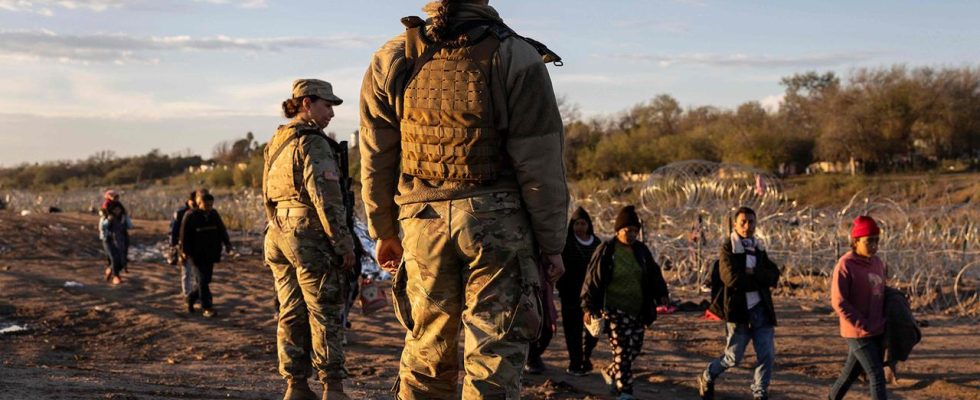Yesterday the US Supreme Court allowed Texas to criminalize irregular migration. An appeals court has now stopped this law again. The legal tug of war is therefore being extended.
The controversial immigration law in the state of Texas continues to concern the courts in the USA. After a ruling by the Supreme Court, the law initially came into force on Tuesday, but was put on hold again by an appeals court that evening (local time).
As US media reported, Texas does not want to accept this decision. At the state’s request, the appeals court will hear today whether to reinstate the law for the time being.
Federal Government saw powers exceeded
In December, Texas Governor Greg Abbott signed a law allowing police to arrest people they suspect of entering the country illegally. Local judges should also be given the power to order the immediate expulsion of people. Once in custody, those affected can choose whether to comply with the order to leave the United States or agree to criminal proceedings for illegally crossing the border.
A federal judge struck down the law in late February, but an appeals court stayed that decision soon after. This prompted the federal government to appeal the matter to the Supreme Court. The US Department of Justice argued that the southern US state was exceeding its authority with the project – and thus initially caused a delay.
Apparently no arrests at the border
With the Supreme Court’s decision on Tuesday, the law was initially able to come into force until the appeals court stopped it again. In the short time the law was in effect Tuesday, Texas authorities reported no arrests at the border.
The issue of migration plays a major role in the US presidential election campaign. The latest decisions surrounding the law are likely to further fuel the debate about US migration policy. The legal dispute over the law is now entering the next round. Lawsuits from the Department of Justice and several human and civil rights organizations also still have to make their way through the legal authorities.

